Enhancing institutional capacity of public authorities and stakeholders and efficient public administration.

The overall objective was to strengthen institutional collaboration by stimulating public bodies and key CP actors to plan joint solutions through coordinated measures of prevention, preparedness and response to natural emergencies. The objective contributes to achieving the SO through collaboration between CP institutions, increased coordination in the event of natural emergencies and improved training of CP units.
The common challenge faced by CROSSIT SAFER was to create an institutional level that is able to manage natural risks, i.e. to reduce the risks related to geomorphological characteristics of the territory and climate change that require better coordination of prevention, warning and response measures to natural emergencies in the Programme area. The overall objective of the project was to build capacity for cross-border institutional cooperation between public authorities and key civil protection organisations by promoting joint emergency response planning with coordinated natural emergency prevention, warning and response measures. The achieved objective supports the strengthening of institutional cooperation in the field of civil protection, the improvement of the coordination of interventions in case of natural emergencies and the increase of the preparedness and equipment of civil protection units. The main project outputs are a cross-border protocol for the harmonisation of measures in case of natural emergencies in the cross-border area, joint cross-border standard operating procedures for intervention and beneficiaries involved in joint civil protection training programmes. The benefits impact directly all participating PPs and indirectly other civil protection organisations and the whole population of the Programme area. The approach to the common challenges in the Programme area was aimed in particular at strengthening the institutional cooperation capacity, which was pursued through the signature of the cross-border cooperation protocol, the harmonisation of procedures and measures in case of natural emergencies and the organisation and implementation of joint training and education programmes for civil protection units in both countries. The need for cross-border cooperation stems from the awareness that natural emergencies know no borders. In order to ensure effective and timely action in the event of natural emergencies in the cross-border area, it is therefore necessary to ensure cooperation and coordinated action by civil protection actors between neighbouring states. CROSSIT SAFER built on the knowledge and experience of PPs from other EU projects, which has been updated with new and improved forest fire early warning systems, using seismic vulnerability models of buildings and damage assessment, as well as a cartographic software and an application that allows geographical information systems to be shared in the cross-border area.
The result of the project is strengthened institutional cooperation capacity of public authorities and key actors in the field of civil protection for effective emergency management in the cross-border area. This has been achieved by stepping up institutional cross-border cooperation in the field of civil protection by signing a cooperation protocol in the event of natural emergencies and other disasters in the cross-border area, and by coordinating civil protection interventions in the event of natural emergencies through joint operational rescue and risk management procedures, better preparedness of rescuers and better coordination of training pathways for civil protection teams in the cross-border area. The outcome of the project has contributed to improving the coordination of prevention measures, increasing the preparedness and response capacity of civil protection units in the event of natural emergencies and other disasters and, as a consequence, to an increased intensity of cross-border cooperation between institutions in the Civil Protection and Risk Management Programme area.
Lead Partner
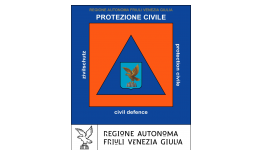
Project partner 1
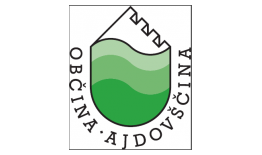
Project partner 2
Project partner 3
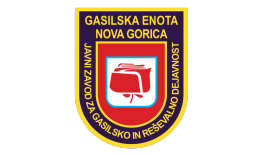
Project partner 4
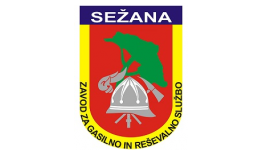
Project partner 5
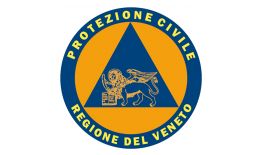
Project partner 6

Project partner 7
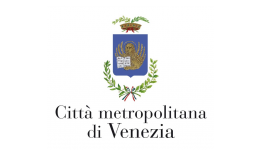
Project partner 8
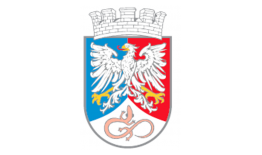
| Case Study_Forest Fuel Assessment.pdf ( 296 bytes, published on 23 November, 2023 - 10:38 ) | |
| Case Study_Interface Fires in Built-up Areas.pdf ( 11 bytes, published on 23 November, 2023 - 10:38 ) | |
| Crossit Safer Brochure.pdf ( 4 bytes, published on 23 November, 2023 - 10:38 ) | |
| Crossit Safer Communication and Visibility Plan.pdf ( 238 bytes, published on 23 November, 2023 - 10:38 ) | |
| Description_New Methodology of Mapping.pdf ( 14 bytes, published on 23 November, 2023 - 10:38 ) | |
| Newsletter_Final Results 1.pdf ( 6 bytes, published on 23 November, 2023 - 10:38 ) | |
| Newsletter_Final Results 2.pdf ( 2 bytes, published on 23 November, 2023 - 10:38 ) | |
| Outputs of the Crossit Safer Project.pdf ( 4 bytes, published on 23 November, 2023 - 10:38 ) | |
| Scientific Paper_Wildland-Urban Interface.pdf ( 1 byte, published on 23 November, 2023 - 10:38 ) | |
| Sporazum.pdf ( 7 bytes, published on 23 November, 2023 - 10:38 ) |
1. To strengthen the institutional collaboration in the cross-border area in the field of the civil protection in the event of natural emergencies in the Programme area:
An analysis of the existing protocols and agreements between the institutions in the area of civil protection and other rescue units in the cross-border area in Italy and Slovenia was carried out as part of the project. By signing the protocol, we have harmonized preventive measures, preparedness measures and measures to respond to natural disasters and in this way improved the cooperation of institutions in the field of civil protection in the program area.
2. To increase the coordination of the civil protection units in the event of natural emergencies in the Programme area with mutual operational rescuing techniques and management of risk of danger:
One of the project objectives was to increase the coordinated actions of the civil protection units in the case of natural and other emergencies in the cross boarding areas, which has been obtained through mutual operational rescuing techniques and management of risk of danger. For this purpose we have prepared rescuing and security plans and standard operational techniques for the actions in the programme area. With the help of the techniqual inovations we a system for control, communication and alarming in the case of natural emergencies in the Programme area has been built in order to allow us to take action in real time. We have developed models for the evaluation of the sismic risk, an innovative method for the common risk mapping systems and for the evaluation of forest fire risk and models for a fast evaluation of damages.
3. To improve the professional competence and to increase the programmes' coordination for the civil protection units' skills on the cross boarder area:
The appropiate skills and equipment of the civil protection units and emergency workers are of crucial importance for an effective and coordinated action in the case of natural emergencies in the cross border areas. For this purpose, our project has created mutual training programmes intended for professional and technical civil protection operators as well as for volonteers. We have provided a series of teoretical programmes for education and practical trainings in the field, that also included local population. Through the activities we have improved the civil protection units' skills and harmonised the training programmes in the project's programme areas for a better and more coordinated operation in the case of natural emergencies.